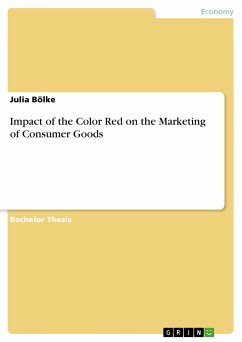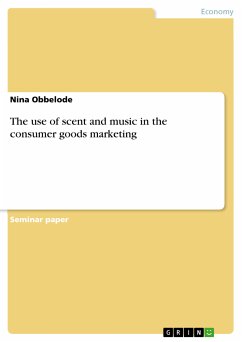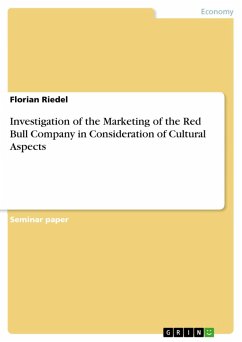Bachelor Thesis from the year 2007 in the subject Business economics - Offline Marketing and Online Marketing, grade: 1,0, University of Applied Sciences Wernigerode, language: English, abstract: This thesis aims at examining the impact of red on the marketing of consumer goods. It explains the way color vision is created in the human brain and emphasizes the relevance it has for individuals to help orientate in everyday surroundings. The thesis focuses on the color red as it causes strong body reactions such as the increase of blood pressure, eyelid move-ment and breathing frequency as well as the production of adrenaline. Furthermore, people's different associations with red, e.g. blood, fire, love, hate, life and death are examined. The major part discusses the suitability of using red in the different sections of the marketing mix (Product, Price, Place and Promotion). Practical exam-ples back up literature findings and show that red can be a very helpful tool, for example, to attract customers' attention for a shopping window or adver-tisement. Following, marketers need to consider that influencing factors such as gender, age, social status, cultural background or product-involvement affect the successful use of red. The case study of Xerox Inc. shows the applicability and popularity of red as a corporate color. At the same time, it reveals limitations to the color choice as the red logo does not differentiate Xerox from its competitors' logos. Besides summarizing the different ideas of this thesis, the last chapter high-lights that, even though a lot of research has been done, marketers need to decide for each case specifically whether or not to use red in their marketing strategy.
Dieser Download kann aus rechtlichen Gründen nur mit Rechnungsadresse in A, B, BG, CY, CZ, D, DK, EW, E, FIN, F, GR, HR, H, IRL, I, LT, L, LR, M, NL, PL, P, R, S, SLO, SK ausgeliefert werden.









